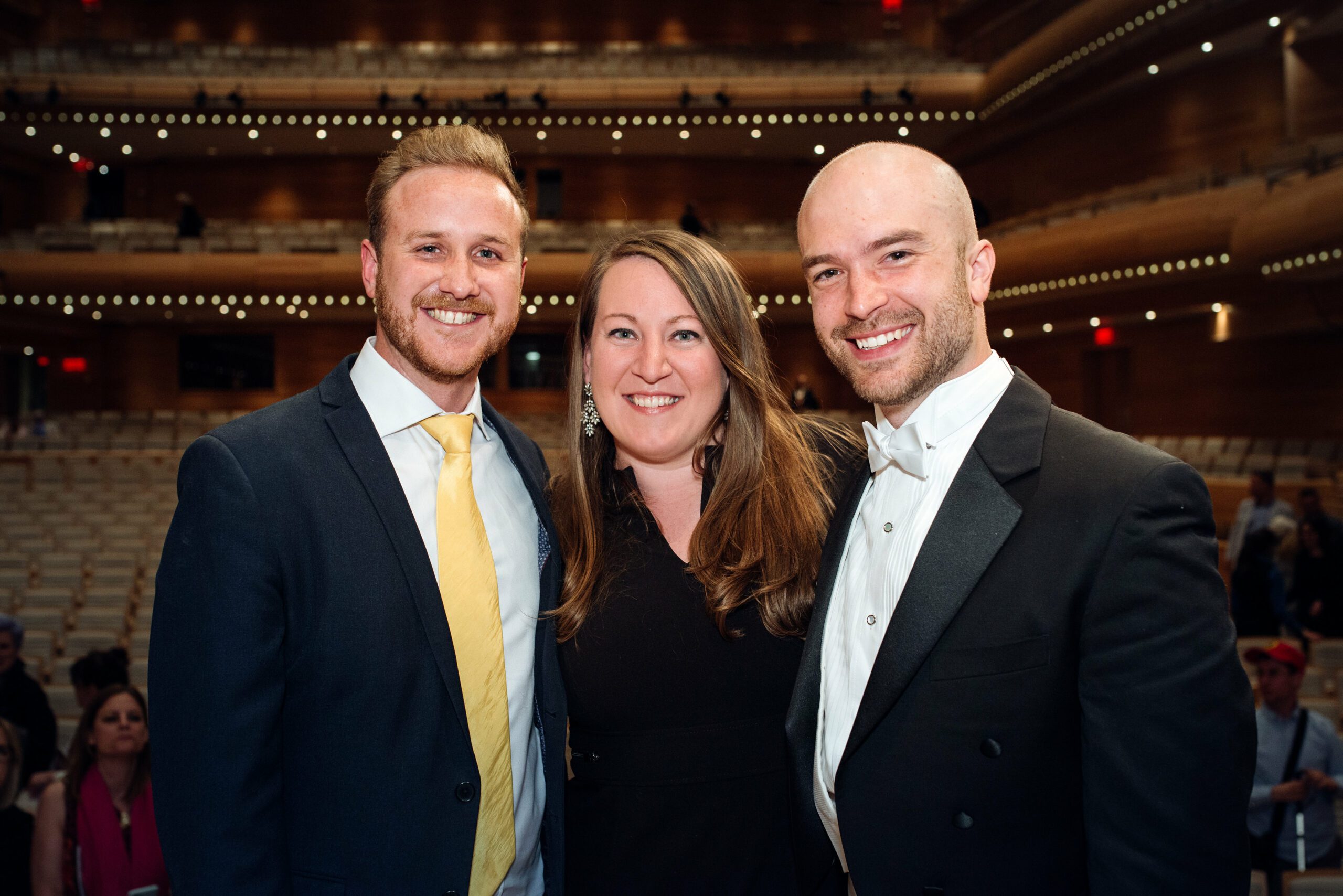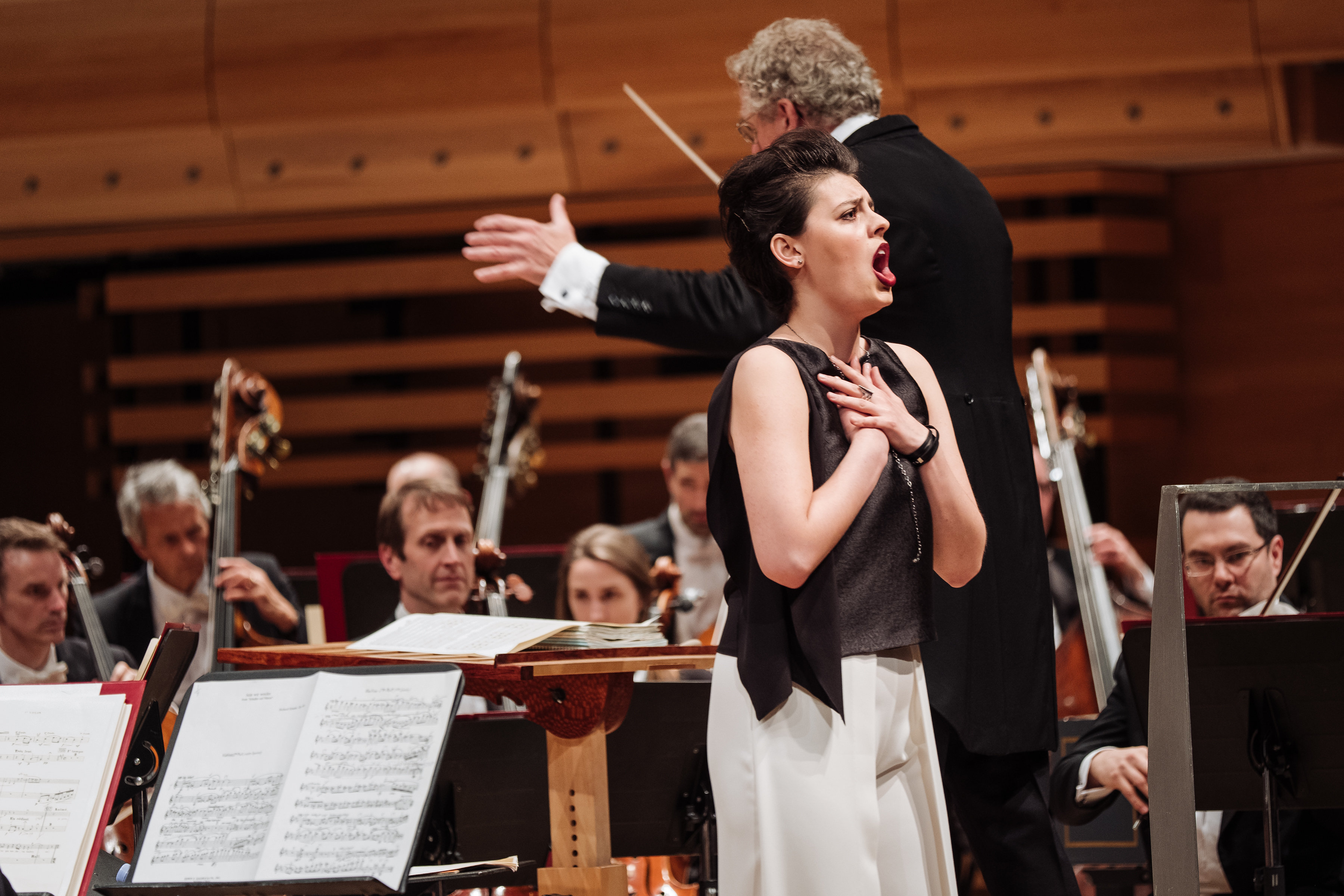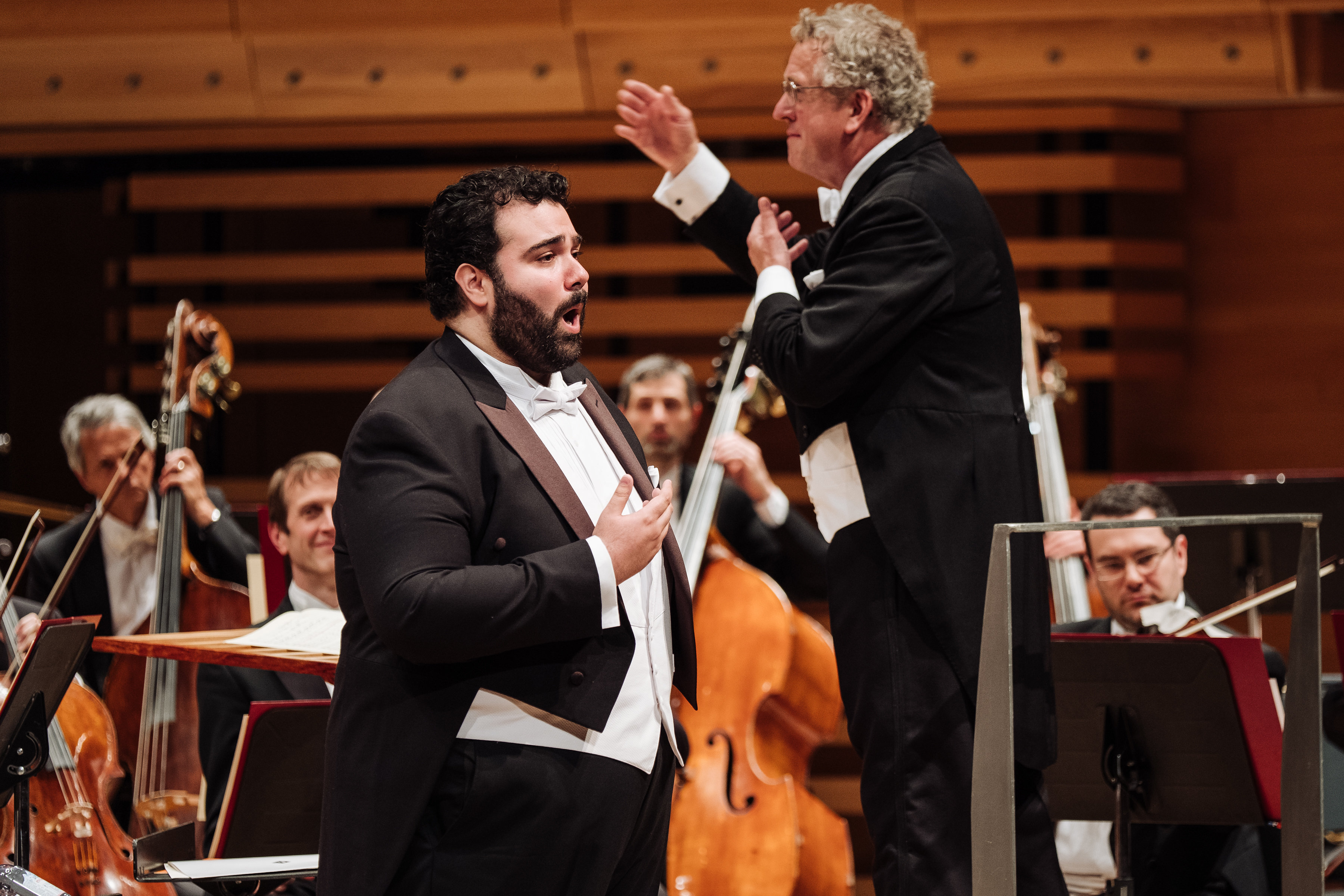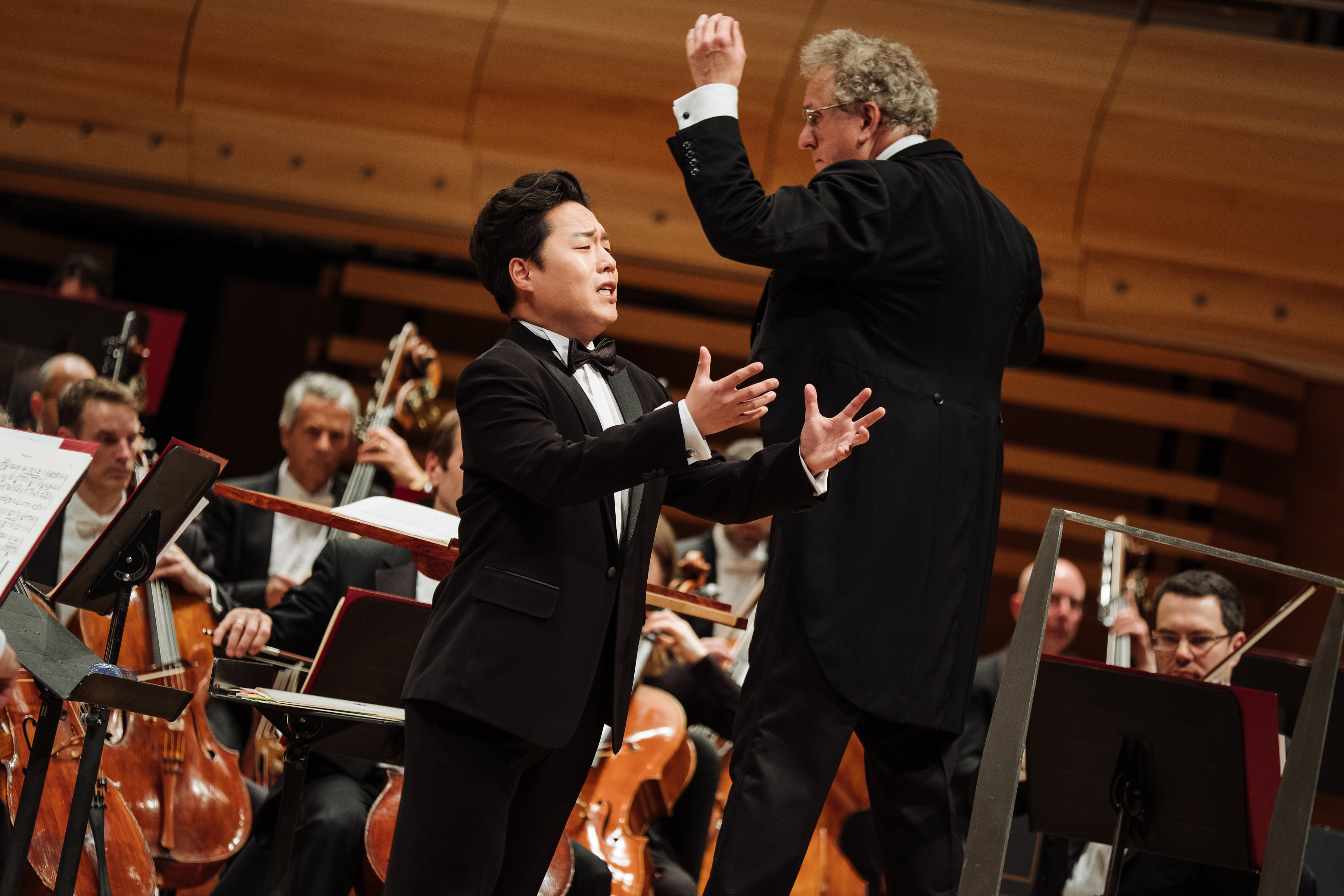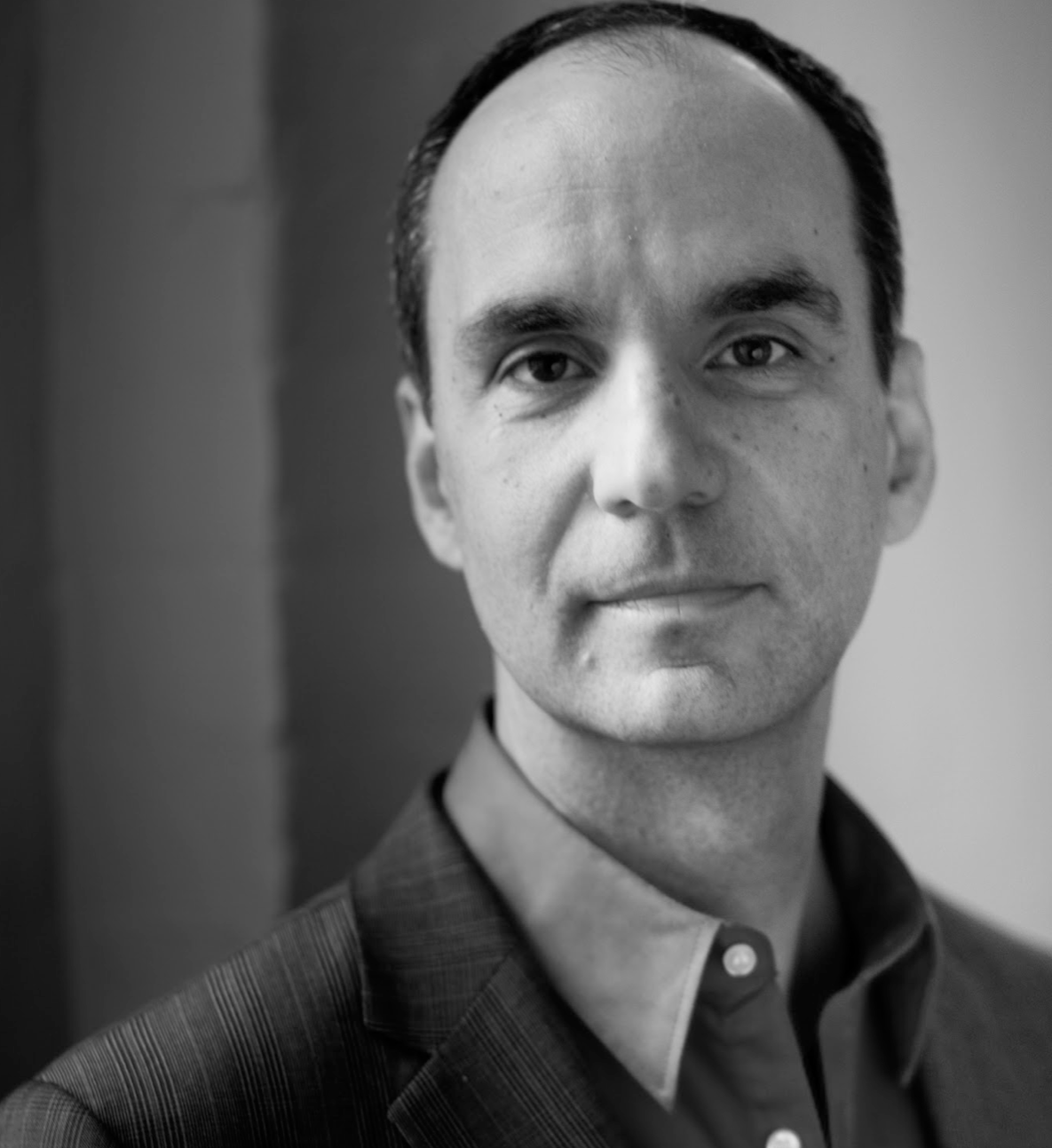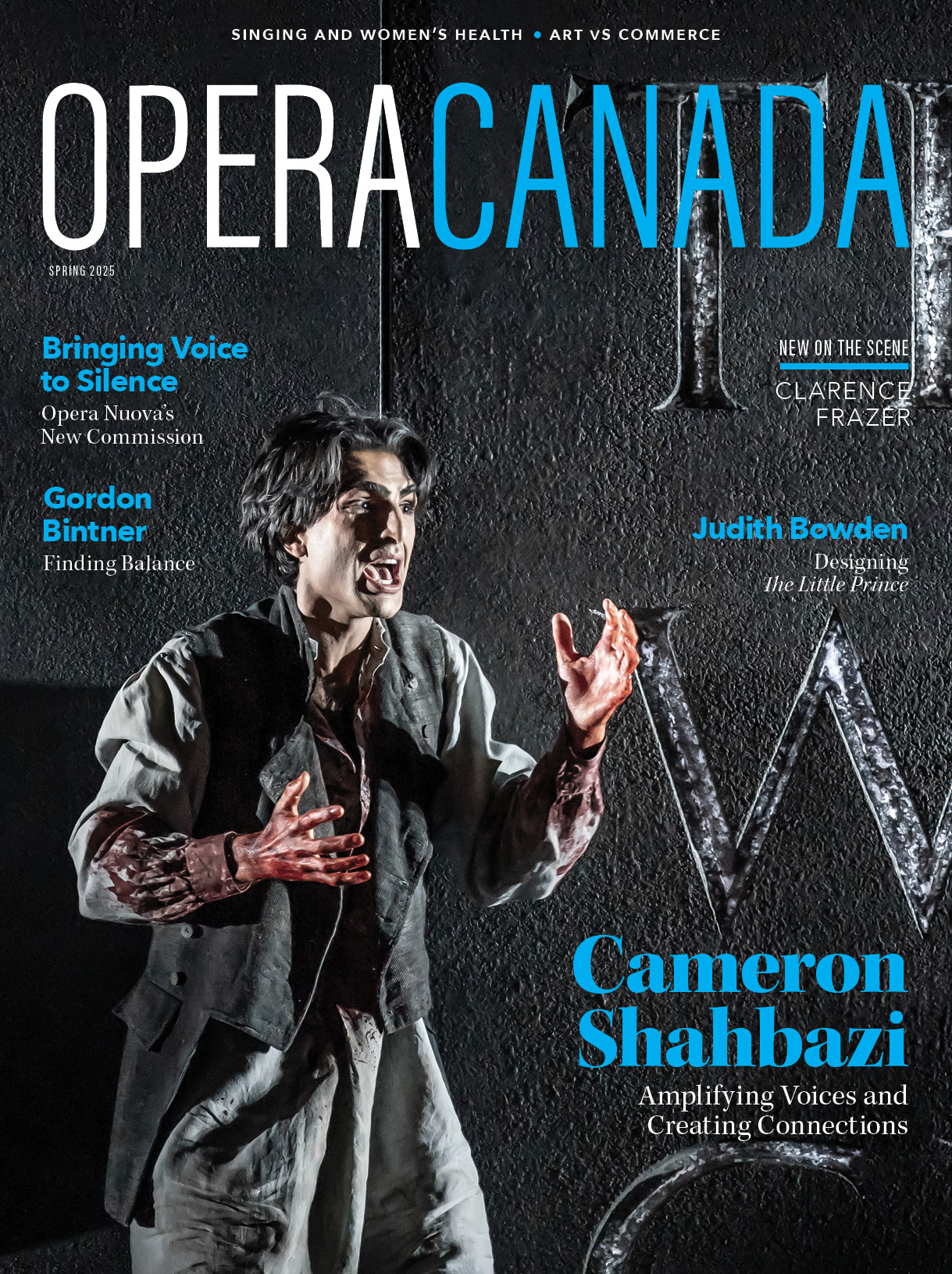The type of media and audience who attend events like this one tend to be highly invested in opera and opera singing. It is therefore not surprising that there was considerable ‘discussion’ after the results came in as to whose favourites had won prizes…and whose hadn’t!
First, a quick run-down of what happened last night. First-up was Canadian mezzo-soprano Emily D’Angelo who, as in her semi-final round, impressed with her utter comfort onstage, detailed characterization and rock-solid vocal technique. She saved her best for last with the Composer’s aria from Strauss’s Ariadne auf Naxos which made you believe in the character’s dictum that “music is the highest art.”
Fellow Canadian, tenor Andrew Haji sang next and interestingly, it was his oratorio selection from Mendelssohn’s Elijah that turned out to be his finest moment. He sang “If with all your hearts” with the clearest English diction and silky timbre. Arias like these, with their endlessly long lyrical lines, are deceptively difficult, requiring superlative legato (smooth singing) which Haji provided in spades. Slight instability on the climactic high C in “Che gelida manina” from Puccini’s La bohème was a minor blemish that would hardly be noticed in a staged performance…but more on that later.
The first half ended with South Korean tenor Konstantin Lee. As in the semis, his singing was absolutely secure with top notes for days. And again, he relied on stock gestures, signalling each climax with an outstretched arm, rarely varying his vocal colour or attempting to convey a character beyond the basics.
American baritone John Brancy’s choice of Rameau’s “Nature, amour, qui partagez mon Coeur” from Castor et Pollux was a welcome respite from the preponderance of Italian and French Romantic repertoire elsewhere. His rendition of Posa’s famous double death aria from Verdi’s Don Carlo was outstanding—utterly compelling and vocally exciting. He often sounded to be on the edge of what his lyric baritone could handle…which probably only added to the frisson he created.
Tenor Mario Bahg from South Korea possesses the sweetest of tones, demonstrating last evening he also has considerable flexibility in Mozart’s fiendishly difficult “Il mio tesoro” from Don Giovanni. Once again, a nice break from all the big Verdi and Gounod. In the latter’s “Salut demeure chaste et pure!” from Faust, Bahg gave us what was probably the most thrilling vocal moment of the night when he managed a perfect diminuendo (gradual quieting) on the aria’s notoriously exposed high C.
Russian bass Mikhail Golovushkin was even more impressive than in the semi-final, closing off the competition with a rousing, rhythmically exciting aria from Borodin’s Prince Igor. He sang the great bass aria “Ella giammai m’amo!” from Verdi’s Don Carlo with great feeling and rich tone but seemed to come unglued from conductor Jenkins’ beat in the repeat of the opening section—it felt like the singer wanted to slow down while the conductor pushed forwards.
Beyond the main ‘top 3’ prizes in the Art Song and Aria divisions, many other special prizes were bestowed—the full list can be found here. Canadians Emily D’Angelo and Andrew Haji won the audience choice (aria) and oratorio aria prizes respectfully. From earlier rounds, Canadians soprano Magali Simard-Valdès nabbed the Office Franco-Québécois de la Jeunesse prize and mezzo Rihab Chaieb, the Best Canadian Artist Art Song award.
In the Art Song division, first prize went to John Brancy, second to UK/New Zealand baritone Julien van Mellaerts, third to American mezzo-soprano Clara Osowski. Opera Canada’s choice for first prize, UK soprano Gemma Summerfield was shut-out.
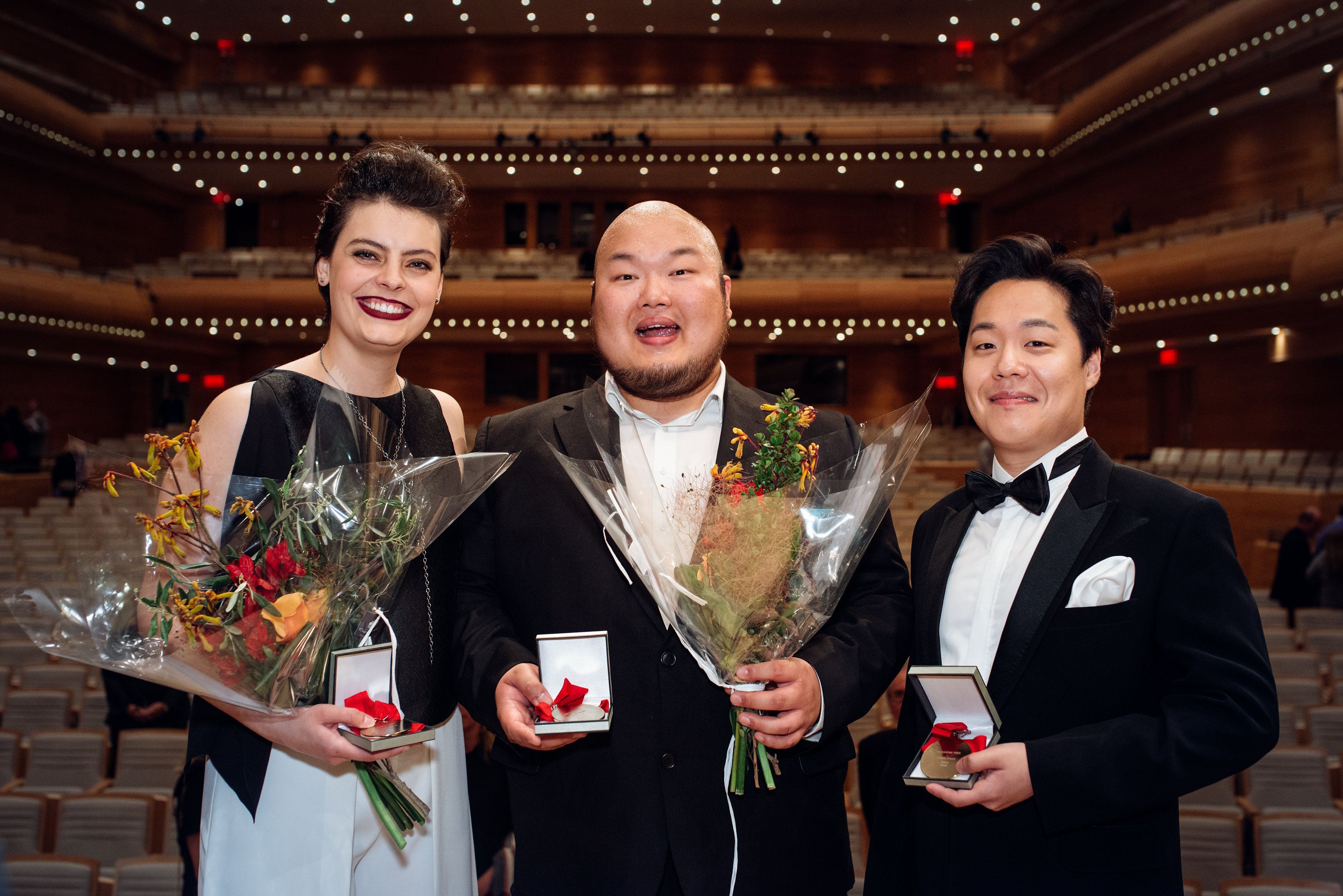
Emily D’Angelo, Mario Bahg and Konstantin Lee, top prizewinners in the Art Song division, CMIM, 2018. Photo: Tam Lan Truong Photography
First prize in the Aria division went to Mario Bahg, second to Emily D’Angelo and third to Konstantin Lee.
The level of singing at CMIM was extremely high. It is difficult to second guess the panel of judges, but the overwhelming preponderance of male voices, especially tenors, and lack of any high voiced women in the final made one pause. That a competitor as accomplished as Summerfield was not even awarded one of the ancillary song prizes was extremely surprising.
It did feel as if the judges had perhaps sided with the criteria of vocal ‘perfection’ over expression in their prize-giving. The two tenor Aria winners while both excellent technicians, gave very little indication of their ability as singing actors, especially in comparison to singers such as Haji and Golovushkin.
In the end it seemed to come down to that age-old conundrum in opera…which is more important, the music or the words? It felt as though, (in the Aria division at least), the judges had decided in favour of the former rather than the latter.

